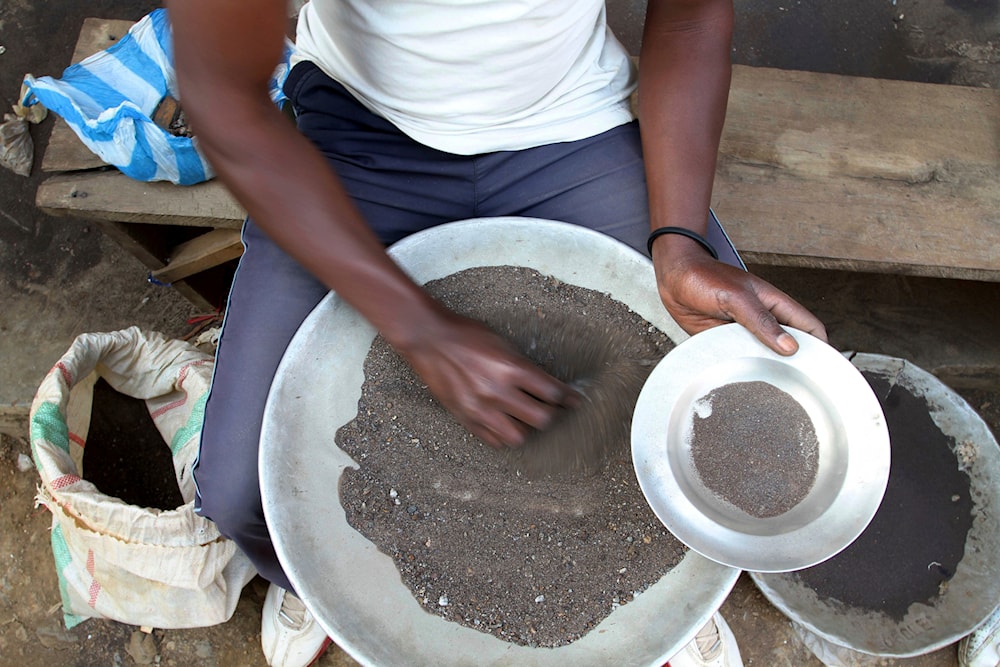DRC accuses Apple of using 'blood minerals' smuggled into Rwanda
The cease-and-desist letter warns that minerals taken to Apple are sourced from areas where sexual violence, armed attacks, and widespread corruption are prevalent.
-

A Congolese miner sifts through ground rocks to separate the cassiterite, the main ore that's processed into tin, in the town of Nyabibwe, eastern Congo, Aug. 16, 2012 (AP)
A formal cease-and-desist notice, seen by AFP, has been issued against Apple by lawyers for the DRC accusing the tech giant of purchasing minerals smuggled from the DRC into Rwanda, where they are laundered and "integrated into the global supply chain."
The notice effectively warned Apple that it could face legal action if the alleged practice continues.
In light of that, Apple recalled its latest annual report on conflict minerals like tin, tantalum, and cobalt used in high-tech products but are mined by armed groups in unstable areas.
The company has audited its suppliers and published the findings for several years.
The report said, "Based on our due diligence efforts... we found no reasonable basis for concluding that any of the smelters or refiners of 3TG [tin, tantalum, tungsten and gold] determined to be in our supply chain as of 31 December 2023 directly or indirectly financed or benefitted armed groups in the DRC or an adjoining country."
However, the international law firm hired by the DRC government, Amsterdam & Partners, revealed that Apple lacked verifiable evidence in its claims.
Read next: Meta, Sama sued for busting unions, exploitation in Africa
In its statement, Amsterdam & Partners said, "The world's eyes are wide shut: Rwanda's production of key 3T minerals is near zero, and yet big tech companies say their minerals are sourced in Rwanda," adding that Macs, iPhones, and other Apple products are "tainted by the blood of the Congolese people."
The cease-and-desist letter warns that minerals taken to Apple are sourced from areas where sexual violence, armed attacks, and widespread corruption are prevalent.
The DRC has been rampaged with violent armed groups like the M23, a mainly Congolese Tutsi group of militants, which is one of more than 120 other armed groups active in eastern DRC.
In 2012, a joint offensive by UN troops and the Congolese army put an end to the rebellion, but the M23 resumed fighting, accusing the government in Congo of not respecting a 2009 agreement under which its fighters were to be blended with the army.
Relations between the DRC and Rwanda have been strained since the overwhelming entry of Rwandan Hutus suspected of slaying Tutsis during the 1994 Rwanda genocide in the eastern DRC.

 3 Min Read
3 Min Read








